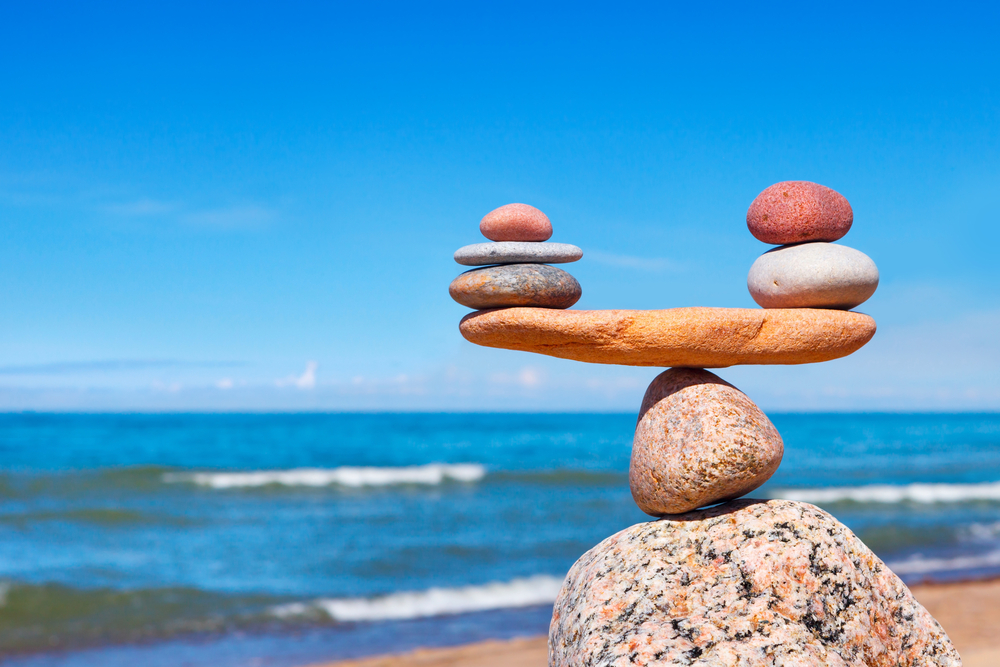
Are you in your 30s or 40s and struggling to find the perfect balance between your professional and personal life? You’re not alone! Many people face this challenge, but the good news is that it’s never too late to learn and implement the art of work-life balance. In this blog post, we’ll share five powerful strategies to help you master this essential skill and make the most of your life. Let’s dive in!
Key Takeaways:
-
Prioritize your time effectively
-
Set realistic goals and expectations
-
Embrace self-care and healthy habits
-
Learn to say “no”
-
Stay connected with loved ones
Prioritize Your Time Effectively
Effective time management is the cornerstone of work-life balance. Start by identifying your top priorities, both at work and in your personal life. Use a planner or digital tool to schedule your time accordingly, making sure to allocate enough time for each task. Remember to include buffer time for unexpected events, and don’t forget to schedule downtime for yourself. By managing your time efficiently, you’ll be able to accomplish more and enjoy a more balanced life.
Set Realistic Goals and Expectations
Setting realistic goals and expectations is essential for maintaining a healthy work-life balance. Be honest with yourself about what you can achieve in a given timeframe, and avoid overcommitting. Break your goals into smaller, manageable tasks, and celebrate your accomplishments along the way. This will help you stay motivated and reduce the risk of burnout.
Embrace Self-Care and Healthy Habits
Taking care of your physical, mental, and emotional well-being is crucial for achieving work-life balance. Develop a self-care routine that includes regular exercise, healthy eating, and sufficient sleep. Make time for hobbies and activities that bring you joy, and don’t be afraid to seek professional help if needed. By nurturing your mind and body, you’ll be better equipped to handle the demands of both your personal and professional life.
Learn to Say “No”
Learning to say “no” is a vital skill for maintaining a healthy work-life balance. Be selective about the commitments you take on, and don’t be afraid to decline invitations or requests that may overwhelm you or interfere with your priorities. Remember, it’s okay to put your needs first and set boundaries to protect your time and energy.
Stay Connected with Loved Ones
Finally, don’t underestimate the importance of staying connected with your loved ones. Make time for family and friends, and nurture these relationships. Strong personal connections can provide emotional support, reduce stress, and improve overall well-being. Set aside regular time to spend with your loved ones, and make an effort to stay in touch even when life gets busy.
FAQ Section:
-
How can I improve my work-life balance if I’m a workaholic?
-
Start by setting realistic goals and expectations, and make a conscious effort to prioritize your personal life. Learn to say “no” to excessive work commitments and develop a self-care routine to nurture your mental and physical well-being.
-
-
How do I balance my career and family life?
-
Prioritize your time effectively, and communicate openly with your family about your work commitments. Make sure to set aside dedicated time for your family and be present during those moments. Don’t forget to schedule regular family outings or activities to strengthen your bond.
-
-
What are some effective ways to manage stress and maintain a healthy work-life balance?
-
Practice stress-management techniques like deep breathing, meditation, or yoga. Develop a support system of friends and family, and don’t be afraid to seek professional help if needed. Also, ensure you’re getting enough sleep, eating well, and exercising regularly.
-
-
How do I know if my work-life balance is off?
-
If you’re experiencing increased stress, feeling overwhelmed, or neglecting your personal life and relationships, it may be a sign that your work-life balance is off. Take a step back and evaluate your priorities, and make necessary adjustments to restore balance.
-
-
Can technology help me achieve a better work-life balance?
-
Yes, various apps and tools can help you manage your time more effectively, track your goals, and even practice mindfulness. Explore the available options and find the ones that work best for you.
-
Conclusion:
Achieving work-life balance in your 30s and 40s is an essential skill that can significantly improve your overall well-being and quality of life. By prioritizing your time, setting realistic goals, practicing self-care, learning to say “no,” and staying connected with loved ones, you’ll be well on your way to mastering the art of work-life balance. Remember, it’s never too late to make a change and transform your life for the better.

